You rarely find a novelty or a rarity, but especially for children each pool is a new experience, and this is so for those who have retained the inner child in us, retaining which is the way to remain young at heart despite the failing of our bodies. There are some creatures that I have never seen. For example, I have never come across a hermit crab. Maybe they are hiding from me. I have found one dogfish [cat shark] and that was on a beach in Donegal fifty years ago. Shrimps and prawns can be found in abundance, darting to the safety of rocks or weeds from our probing nets. Shore crabs are also evident, waving their claws in self-defence. Seeing any of these species is a great experience for a young child, and I admit, I still love the experience even at seventy, though I can no longer spring from rock to rock.
The jewels of the rock pool are the anemones. At low tide they are variously-coloured, water-filled blobs, purple, red or green against the rocks to which they cling. But as the tide surges over them they open up and begin to wave their tentacles in their urgent search for prey. Sea anemones are not plants, though they superficially resemble members of the plant kingdom. Anemones are animals and so they consume others.
Generally rockpools are places where you can find shellfish. Mussels are regulars in the pools in the middle zone and are available for picking in many places [with due care for water quality, toxic algae and local regulations. ] I have never found oysters in rock pools, they prefer sandier ground. There are large beds of them on the extensive Laefan Sands in North Wales. But only people with extensive knowledge of the sands and the tides should walk these dangerous places. Stay safe! Limpets and barnacles commonly smother rocks in pools that are regularly exposed. They are so familiar that they are like old friends. Winkles occur in profusion on rocks and wooden structures, providing pickings for shellfish hunters seeking a free meal, and occasionally we find a whelk shell washed up, reminding us that there are shellfish in deeper waters.
Rockpools are magical places where children can experience nature safely and adults can indulge the inner child that keeps them young at heart. There is a joy in the moment of discovery, however small and insignificant the creature might be. Stay young, keep searching!
I am an Amazon associate and I earn money from qualifying purchases made from this page.


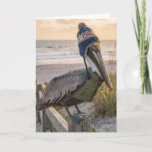
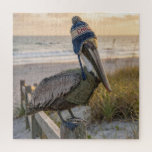
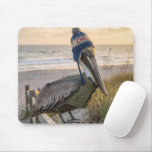

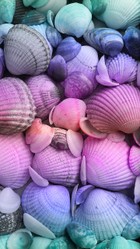

 Darkness over the Earth the skies darkened when Jesus was crucified16 days ago
Darkness over the Earth the skies darkened when Jesus was crucified16 days ago
 TheThousand Year Gardenon 11/26/2025
TheThousand Year Gardenon 11/26/2025
 Women of the Gospelson 10/11/2025
Women of the Gospelson 10/11/2025
 Religious Gardenson 08/25/2025
Religious Gardenson 08/25/2025


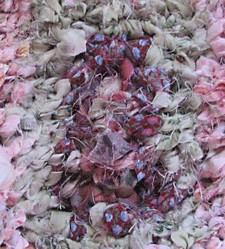

Comments
The third paragraph to the second subheading, Rockpool safety, advises us that "Remember that some sea creatures can have sharp claws. You are not likely to meet many in a rock pool, but in Britain we have the velvet swimming crab, which has very powerful claws and an aggressive temperament. You can get a nasty nip from it. Spider crabs, found occasionally in the lower zone, can also give a painful nip."
Are the aforementioned bites treatable only by medical personnel or might home remedies suffice?
I have read some of his works,but not the ones on subjects that you mention. I read one of his works on the Hebrides and I followed his.. route around Britain on the television
Thank you for your comment below in answer to my previous observation and question.
The library system catalogs Adam Nicolson with publications about Homerian relevance, the King James Bible, sea birds and Trafalgar.
Might you have read any of the above-mentioned books?
I am not familiar with the book that you mention, but I am well-familiar with Adam Nicolson. I have read his book Sea Room, and I watched his television series in which he travelled the British Isles. One incident stuck in my mind. On the [predominantly Calvinist] Isle of Lewis some smug, young Calvinists asked Adam whether he was saved, and appeared visibly shocked when he humbly said that he did not think so. But I got the feeling that he was the humblest person there.
The library system here catalogues The Life Between the Tides by Adam Nicolson as its only rock pool-related holding.
The online catalogue summary describes a different approach to educating us about rock pool fauna than the Buttivant book in that Life Between the Tides is a bit fanciful by giving information while the author imaginatively interacts with literary figures and scientists, all of whom were interested in rockpools. It indicates that Nicolson builds rock pools along coastal Scotland.
Is the book or its author and his rock pool-building familiar to you?
Picking winkles is time consuming, so their following is limited.
frankbeswick, Thank you for the practicalities and the product.
The Buttivant book is exactly one of the kinds of books that appeals to me so I look forward to ordering and reading it.
The internet indicates that winkles are delicious but with a "limited following." Why is that so?
Yes, you came over the rocks with your brothers because you wanted to join in, and you liked the pools. As you were an infant I had to help you at times I don't think that mother enjoyed beaches very much except for walking on them. Note that after we grew up she never chose a beach holiday.
I have never liked beaches but I used to go with my sons when they were little. Going to the rockpools was the only thing that I liked.
Well said. They must have been young crabs, hence were too small to be noticed at first..